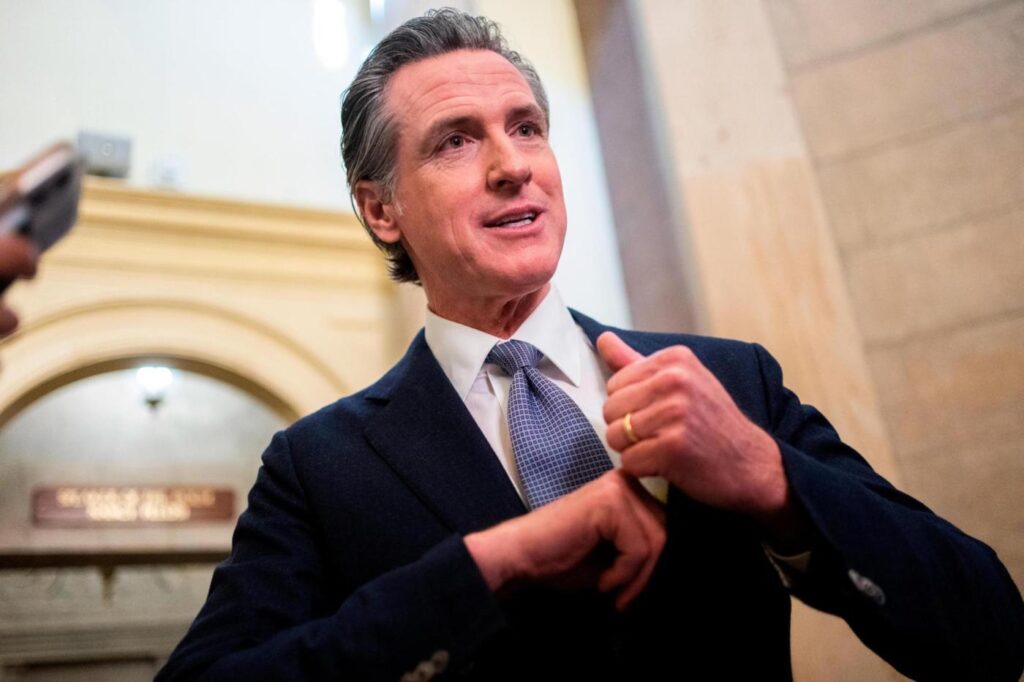
Dashing progressives’ hopes for a radical strategy to curb overdoses in California, Gov. Gavin Newsom on Monday vetoed a bill that would have allowed experimental drug injection sites to open in Los Angeles, Oakland and San Francisco.
Senate Bill 57 would have allowed the three cities to become among the first in the country to open facilities where users could bring drugs and consume them in a safe, supervised setting. The bill passed the state legislature this month. But after returning the bill without his signature, Newsom expressed worry that the law could actually make the drug crisis worse in those three cities.
“The unlimited number of safe injection sites that this bill would authorize — facilities which could exist well into the later part of this decade — could induce a world of unintended consequences,” he wrote in a veto message. “It is possible that these sites would help improve the safety and health of our urban areas, but if done without a strong plan, they could work against this purpose.”
Newsom added that he is instructing the secretary of health and human services to convene a group of city and county officials to discuss overdose prevention strategies and how to implement a more limited pilot program.
The move comes amid mounting speculation that Newsom might be eyeing a presidential run. And while it’s unclear whether those ambitions played into his decision, rejecting the bill likely will only help him on the national stage, where the majority of voters would likely balk at the idea of facilitating drug use, said Claremont McKenna College political science professor Jack Pitney.
“There’s a solid policy rationale for the veto,” Pitney said, “but politically, he’s dodged a potentially big problem.”
“We are incredibly disappointed and heartbroken that Governor Newsom has put his own political ambitions ahead of saving thousands of lives and vetoed this critical legislation,” Jeannette Zanipatin, California state director of the Drug Policy Alliance, said in a statement. “Despite the governor’s remarks, L.A., San Francisco and Oakland have already designated this a priority by authorizing the programs locally and have been standing ready to implement them quickly.
“We have already engaged local stakeholders in a robust process and they have taken active steps towards implementation in order to be part of the pilot SB 57 would have put in place. We don’t need additional processes. What we need is action. Without action, people are going to die.”
SB 57 would have allowed drug users to consume drugs in a setting staffed by people trained to reverse an overdose. They would be provided with clean supplies, such as needles, and access to addiction treatment, medical care, mental health help and other social services.
The pilot program would have lasted until 2028.
Speculation has been flying recently that Newsom is laying the groundwork for a presidential campaign. He bolstered his national presence with a trip to Washington, D.C. last month, and shortly after, launched attack ads in Texas criticizing Gov. Greg Abbott’s policies on guns and abortion.
Though Newsom in the past had signaled he was receptive to the idea of drug consumption sites, signing off for California to become the second state in the nation to operate such a program is likely not the best way to win national political favor, Pitney said. Even in California, which is generally thought of as a bastion of progressive ideals, there’s a tough-on-crime streak.
Approving SB 57 would have handed ammunition to an opponent, Pitney said.
“This would be a freebee for a Republican opposition researcher,” he said. “It’s easy to write the script for the attack ad.”
